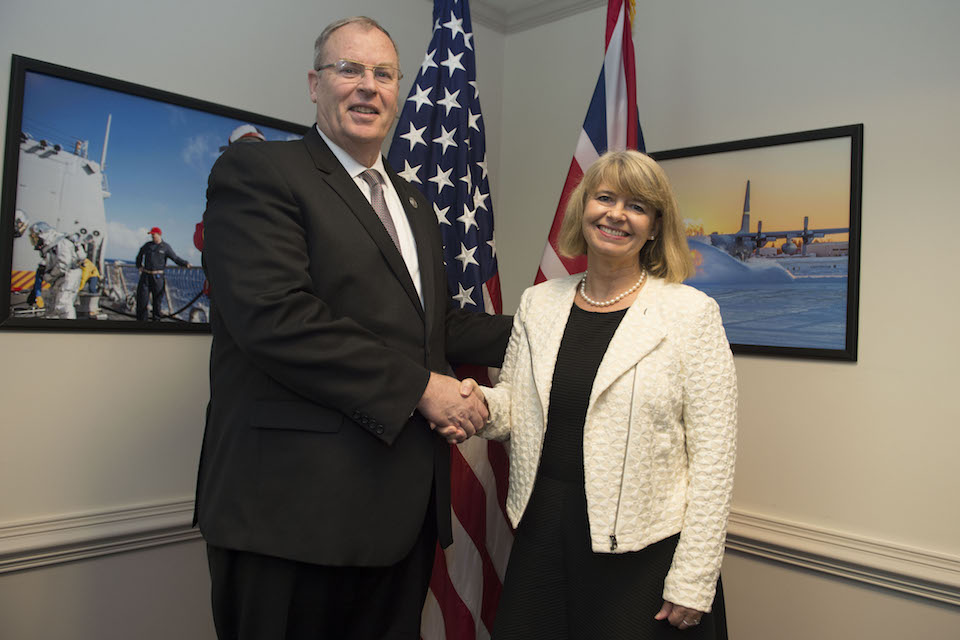As the UK Government launched its new industrial strategy, Alun Cairns took the opportunity to highlight the major contribution defence industry makes to the economy in Wales, as well as across the whole of the UK.
In November 2016, the UK was chosen to become the global repair hub for F-35 avionic and aircraft components, securing thousands of highly skilled jobs and millions in investment, with the potential to unlock more than £2bn of future F-35 support revenue over the lifetime of the programme. Mr Cairns viewed the future F-35 facilities and met senior figures from DECA, apprentices, local small businesses, and Joint Venture partners BAE Systems and Northrupp Grumman.
Alun Cairns, Secretary of State for Wales, said:
The decision to house the F-35 global repair hub in North Wales is testament to Wales’ international reputation for technology and manufacturing. DECA Sealand and companies like Airbus show that this part of Wales is now a leader in aviation technology. The fact Wales is producing the next generation of army fighting vehicles in Merthyr shows we offer a highly skilled workforce and locations that work for business.
The industrial strategy is a plan for everyone; every sector and business in Wales has a stake in it. By pulling together we can build a Welsh economy that works for everyone supported by well-paid jobs for our young people.
Defence Secretary Sir Michael Fallon, said:
Britain’s selection as a global maintenance and repair hub for F35s is a vote of confidence in our high-tech defence industry, generating billions of pounds for the UK and creating thousands of jobs.
But we want to do more through the industrial strategy to build on our strengths and get every part of the country, including Wales and North West England, firing on all cylinders.
Backed by our rising defence budget, a £4.7bn increase in R&D funding and Defence’s £800m Innovation Initiative, we are determined to make the UK one of the most competitive places in the world to innovate, build business and help deliver security.
The government’s Industrial Strategy will seek to make fresh choices about how the UK shapes its economy and presents an opportunity to deliver a bold, long term Industrial Strategy that builds on strengths and prepares for the years ahead.
With over 3,000 aircraft expected to be in service with 12 nations, the F-35 represents a truly international programme and supply chain, including in the UK, with British companies providing approximately 15% by value of every F-35 to be built.
The government will develop this strategy further with industry and ensure the UK remains one of the best places in the world to innovate and do business. Following a period of consultation, the government intends to publish an Industrial Strategy white paper in 2017 that will set out the plan for full and long term delivery.
